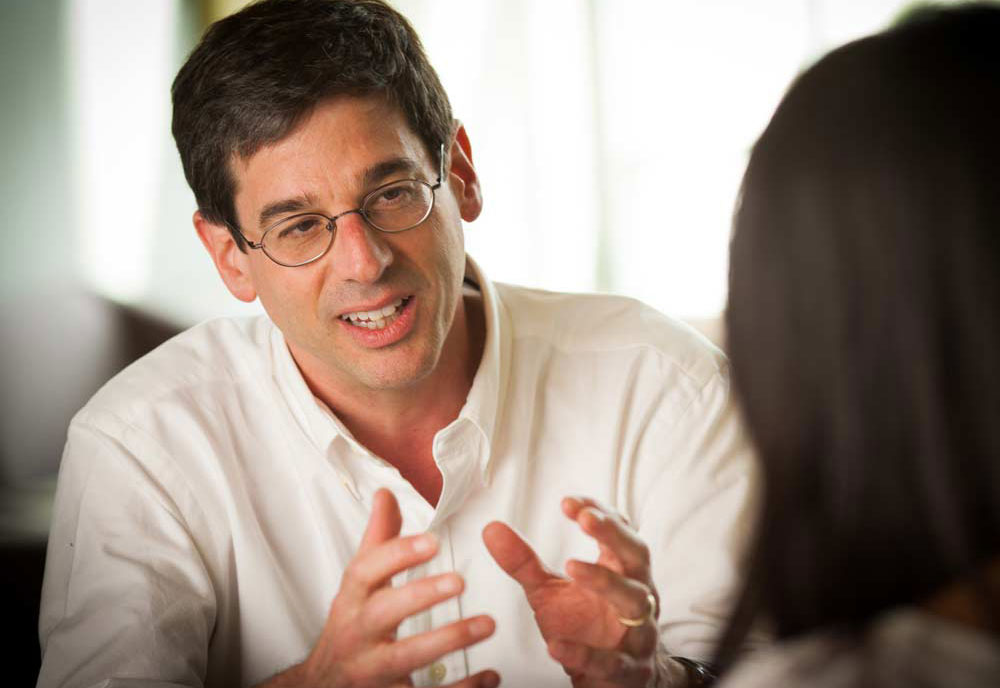Rady Children’s Institute for Genomic Medicine (RCIGM) announced that Robert Wechsler-Reya, PhD, has been named program director for the Joseph Clayes III Research Center for Neuro-Oncology and Genomics at RCIGM. Wechsler-Reya, a professor at Sanford Burnham Prebys Medical Discovery Institute (SBP), will retain his position as director of the Tumor Initiation and Maintenance Program at SBP’s NCI-designated Cancer Center and will hold a joint appointment at RCIGM.
Wechsler-Reya is an authority on the molecular mechanisms that regulate cell growth and tumorigenesis in the nervous system, with particular emphasis on the genes and signaling pathways that contribute to medulloblastoma. Medulloblastoma is the most common malignant brain tumor in children. Its rapid growth and tendency to spread through the nervous system make it difficult to treat, and many of the children who develop the disease die from it. Moreover, those who survive treatment often suffer life-long cognitive deficits, and develop other cancers later in life.
“We are thrilled to have Rob join our team,” said Dr. Stephen Kingsmore, president and CEO of RCIGM, “Given our plans to rapidly deploy our sequencing process to all critically ill children at Rady Children’s Hospital, Rob’s subject matter expertise and ties to the research community provide just the right combination to attack the devastating diagnosis of childhood brain cancer.”
The Joseph Clayes III Research Center for Neuro-Oncology and Genomics is applying state-of-the-art sequencing and analysis technologies to each patient’s tumor to establish a profile—a fingerprint—that is used to tailor therapy. This includes rapid whole genome sequencing, RNA sequencing, and epigenetic analysis on every child’s tumor. This information is evaluated by a team of experts—including physicians, biomedical scientists and computational biologists – to classify tumors and to identify optimal therapeutic strategies for each patient.
“Improved treatment of medulloblastoma, as well as other pediatric brain tumors, will likely come from a deeper understanding of the genes and signals that control normal brain development, and how these go awry in tumor development,” says Wechsler-Reya.
Historically there has been a gap between what is learned in the research lab and what is done in the clinic. The Joseph Clayes III Research Center will bridge this gap by using expertise in tumor biology to identify key mutations and signaling pathways in each patient’s cancer, and then using them to design appropriate therapies.
This holistic approach will also be used to design clinical trials for patients whose tumors share certain molecular profiles. This strategy brings patients with similar tumor features under the same umbrella and maximizes their potential to respond to new drugs.
“This is a great opportunity for Rob—and SBP—to connect our biomedical research and drug discovery capabilities with the clinical teams at RCIGM to improve outcomes for children with brain cancer,” said Perry Nisen, MD, PhD, CEO of SBP. “On behalf of the faculty and staff at SBP, we extend our congratulations to Rob on his new position with RCIGM.”
Future plans include leveraging the drug screening capabilities at SBP’s Conrad Prebys Center for Chemical Genomics to help Rady Children’s Hospital clinicians get the right drugs for each patient on the first try. “By increasing the amount of information we have about a child’s brain tumor up front, we hope to avoid therapies that won’t work and go straight to treatments that we believe—based on molecular evidence—will target the tumor,” says Wechsler-Reya.
